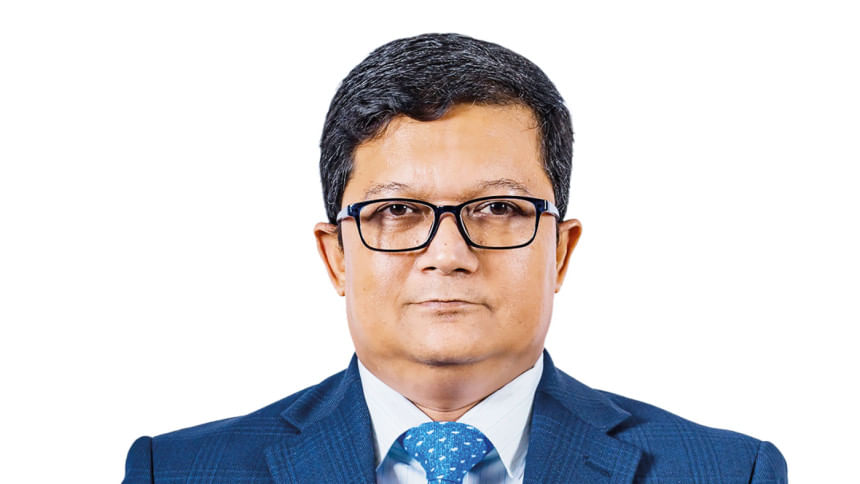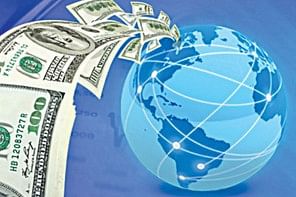Empowering women entrepreneurs and small businesses

Tareq Refat Ullah Khan
Managing Director & CEO (Current Charge), BRAC Bank
The Daily Star (TDS): How would you assess the current state of sustainable banking in Bangladesh?
Tareq Refat Ullah Khan (TRUK): The current stage of sustainable banking, not only in Bangladesh but globally, is still in its early and evolving phase. However, Bangladesh is ahead of many countries in terms of regulatory frameworks. Bangladesh Bank has been a pioneer in introducing a Sustainable Finance Taxonomy, Environmental & Social Risk Management (ESRM) Guidelines, and directives aligned with IFRS S1 and S2 standards.
At BRAC Bank, our sustainable finance portfolio stands at 82%, with 20% dedicated to green finance, reflecting our strong alignment with the regulator's priorities. While more awareness and capacity-building are required, from a policy standpoint Bangladesh is already at the forefront of sustainable banking initiatives.
TDS: What sustainable financing/refinancing schemes does your bank offer, particularly for SMEs, women entrepreneurs, or other environmentally responsible enterprises?
TRUK: BRAC Bank has attractive financing options for both green and sustainable projects. On the green side, we actively utilise Bangladesh Bank's refinancing schemes such as the Green Transformation Fund (GTF), the Refinance Scheme for green products, projects and initiatives, and the Technology Development Fund (TDF). These facilities enable us to support projects in renewable energy, green and environment-friendly establishments, energy efficiency, and effluent/water treatment plants—helping businesses adopt cleaner and more sustainable practices.
As the largest SME bank in Bangladesh, we are also one of the most active participants in SME refinancing. We channel funds through schemes such as the Tk. 25,000 crore Pre-Finance Facility (SMTLR), the TARA Refinance Scheme for Women Entrepreneurs, Agro-Processing Refinance, New Entrepreneur Refinance, and the Low-Income Professionals Facility. In addition, we access specialised programmes such as the ADB-supported and SME Foundation funds, which allow us to reach women entrepreneurs, new business starters, agro-based industries, and low-income professionals.
It is worth noting that BRAC Bank has consistently been recognised for its leadership—achieving the highest Bloomberg ESG rating among all organisations in Bangladesh in the recent Bloomberg ranking and being ranked by Bangladesh Bank as one of the top sustainable banks five times in a row.
TDS: What initiatives has your bank undertaken to promote sustainable banking, and what measures have you implemented to reduce your own carbon footprint?
TRUK: At BRAC Bank, sustainability is embedded in our DNA, not an afterthought. We are introducing various innovative sustainable finance instruments, including a Social Bond that will be issued in line with ICMA Principles. On the customer side, our mobile-based platforms Astha and CorpNet have transformed the way people bank, enabling over 10 lakh customers to transact digitally. This has reduced paper use, minimised the need for branch visits, and lowered travel-related greenhouse gas emissions.
Within our operations, we have converted all offices to LED lighting, installed solar panels in selected branches and ATMs, and implemented a Green Office Guideline to ensure energy and resource efficiency. Our Sustainability Report reflects these efforts and includes detailed GHG emission calculations, aligned with global standards such as PCAF, GRI, and ISSB.
TDS: What challenges has your bank encountered in adopting and promoting sustainable banking practices?
TRUK: The biggest challenge is creating awareness among businesses and customers about the importance of sustainable finance. Many still view green initiatives as costly, especially since the upfront investment for green technologies is higher compared to conventional alternatives. There are also knowledge and capacity gaps when it comes to applying international best practices, and the shortage of skilled manpower in this area remains a barrier.
That said, BRAC Bank has consistently led the way. We were the first bank in Bangladesh to publish an ISSB-aligned IFRS S1 and S2 report.
TDS: What are your bank's future plans to advance sustainable banking, and what support do you seek from the government?
TRUK: Looking ahead, BRAC Bank plans to expand its green and sustainability-linked financing portfolio further, including the issuance of more bonds to mobilise funds for climate-friendly projects. We will also continue to scale up digital banking solutions and adopt measures to reduce our own operational carbon footprint.
From the government, we seek broader policy incentives and fiscal support that will encourage both banks and businesses to adopt sustainable practices. Incentives such as tax benefits, subsidies, and expanded refinancing schemes would accelerate the transition to a greener economy and strengthen Bangladesh's leadership in sustainable finance.
TDS: How do you create impact on people's lives through corporate social responsibility?
TRUK: BRAC Bank draws inspiration from its founder, Sir Fazle Hasan Abed, to drive its CSR initiatives. Sir Abed established BRAC after our independence, and since then BRAC has worked tirelessly to remove barriers to national development. As a member of the BRAC family, BRAC Bank aims to uphold the same values in its CSR programmes. We believe that everyone deserves to lead a meaningful life. Our core CSR priorities span healthcare, education, the environment, and climate change, with programmes supporting rural women's scholarships, disability-inclusive healthcare, and climate-smart farming with safe water access.

 For all latest news, follow The Daily Star's Google News channel.
For all latest news, follow The Daily Star's Google News channel. 



Comments